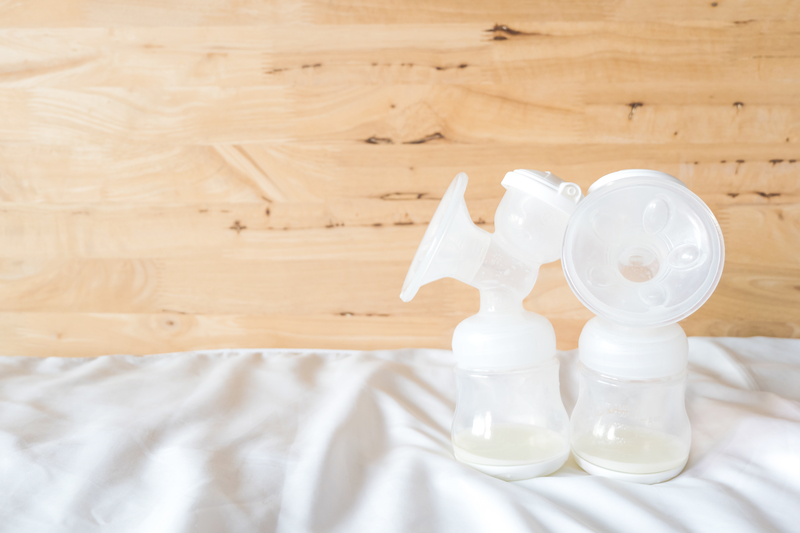-

Introduction — California Protections for Pregnant Workers
California law offers strong protections to employees who have been subjected to discrimination and harassment. Despite that, pregnancy discrimination and retaliation for standing up to discrimination remain rampant. Once employees have been wrongfully terminated, they often know to reach out to seek legal help immediately. But current employees are often more confused about what to do. They may rightfully feel afraid about reporting unlawful conduct to Human Resources, particularly when the conduct is coming from their immediate supervisor. What if it just makes the situation worse? Indeed, far too often, Human Resources is more concerned with protecting the company than with taking the immediate corrective action that the law requires of them. A retaliating supervisor can make a job feel like death by 1,000 paper cuts: scrutinizing, criticizing, and nit-picking every action by an employee, making them feel ostracized or humiliating them in front of their peers, and leaving them in a constant state of fear and anxiety. Indeed, if true, the experiences of the Google employee whose memo went viral demonstrate the myriad ways that a company can fail its employees and allow discrimination and retaliation to persist.
An employee’s best hope is to be fully informed about their legal rights. They can then decide whether to report internally, to file a claim with one of the government agencies that investigates and enforces anti-discrimination laws, to seek private counsel to negotiate an exit or to file suit, or to make a conscious decision to wait (being mindful that if a person waits too long, they may forever lose their ability to assert the claim–a post on this topic will be forthcoming). To that end, I provide the following brief overview of employment protections for California workers subjected to pregnancy discrimination and retaliation. Note that many of these topics have been covered in greater depth elsewhere throughout the blog. (The archive categories are listed to the right of this post.)
1. Discrimination
The Fair Employment and Housing Act (“FEHA”) prohibits discrimination against employees because they belong to a protected category (sex, pregnancy, race, religion, disability, etc.). This includes refusing to hire or promote employees, terminating them, or discriminating against them in compensation or in terms, conditions, or privileges of employment.
2. Harassment
The FEHA further prohibits harassment against employees, applicants, unpaid interns or volunteers, and contractors because of their protected status. Employers are strictly liable for harassment by a supervisor. They are liable for harassment by non-supervisors, and even non-employees, if they knew or should have known of the conduct but failed to take immediate and appropriate corrective action. Employers are obligated to take all reasonable steps to prevent harassment from occurring. An employee need not lose tangible job benefits (e.g., be terminated or demoted) to establish harassment. More on workplace harassment can be found here.
3. Retaliation
The FEHA protects an employee who has “opposed any practices forbidden” under the Act.
An employee is engaging in protected activity when she opposes any practice that would violate the FEHA, even if the practice is not directed at her: “The ‘opposition’ clause protects conduct by an employee who is not the direct victim of a practice made unlawful under Title VII, but who ‘opposes’ such discrimination against others.” (Chin, et al., Cal. Practice Guide Employment Litigation (2019 The Rutter Group) ¶ 5:1527.) Thus, it is unlawful for an employer to retaliate against an employee who reports or otherwise opposes pregnancy discrimination. The FEHA separately imposes liability on an employer for failing to prevent retaliation.
An employee does not have to be right that discrimination actually occurred; they are protected if they had a good-faith belief of discrimination.
Employees also have protections under California’s general whistleblower protection statute, Labor Code § 1102.5, which protects employees from retaliation when they (1) disclose information that they reasonably believe to violate state, federal, or local laws or regulations, or (2) refused to participate in any activity that would violate state, federal, or local laws or regulations.This protection applies whether the employee complains (a) externally to a government or law enforcement agency or to a public body conducting an investigation, inquiry or hearing, or (b) internally to “a person with authority over the employee or another employee who has the authority to investigate, discover, or correct the violation or noncompliance” (e.g., their manager or HR).
Employees are protected even if the disclosures were part of their job duties (so for example, a safety officer is still protected when speaking out about unsafe conditions). Family members of a person who has, or was perceived to have, engaged in protected activities are also protected from retaliation.
Despite these protections, research has shown that when discrimination or harassment is reported, the consequences can be dire: an estimated 75% of employees who speak out against workplace mistreatment faced some form of retaliation.
-

Update: Governor Newsom signed SB-1383 into law on September 17, 2020.On August 31, 2020, two minutes before the end of the 2019–2020 legislative session, the California Legislature passed Senate Bill 1383. SB 1383, if signed into law by Governor Gavin Newsom, will be a game-changer for the millions of California workers working for small employers who will become eligible for job-protected family and medical leave under the California Family Rights Act (“CFRA”).
SB 1383 does two main things:
- It expands CFRA coverage to all employers with five or more employees, down from 50.
- It allows CFRA leave to be used to provide care for grandparents, grandchildren, siblings, domestic partners, adult children, and children of domestic partners.
We expect that Governor Gavin Newsom will sign the bill into law given his commitment to expanding paid family leave.
This blog post discusses the changes to the CFRA created by SB 1383.
-

On October 28, 2019, Motherboard magazine published an article about a particularly egregious case of pregnancy discrimination. The article, titled “Engineer Says Software Firm Cut Her Maternity Leave Short After Her Baby Died,” interviewed Ramit Mizrahi as a subject matter expert on pregnancy discrimination in the tech field. Ramit explained the problem as follows:
“Pregnancy discrimination is a big issue within Silicon Valley. . . Managers start thinking to themselves, ‘If this person is going to be out for four to six months, how are we going to make do? How are we going to function?’ And, unfortunately, this sometimes leads to them denying the pregnant employee opportunities, taking away her job duties, even replacing her or eliminating her role because she took time off. All of these things are illegal.”
“If a company was planning to give someone a promotion, and then finds out that the person is pregnant, they still have to give them that promotion,” she said. “They can’t just say, ‘This isn’t convenient for us.’ But situations do play out this way, and pregnant women are denied opportunities.”
She also explained how Silicon Valley’s gender imbalance and the fact that employees tend to skew younger both contribute to discrimination against pregnant employees/mothers and those who take protected job leaves.
The article can be found here.
-

Update 10/10/2019: Governor Newsom signed SB 142 into law today.
On September 11, 2019, the California Legislature passed Senate Bill 142 (“SB 142”), which would significantly expand lactation accommodations and protections for working mothers. Among other things, SB 142 would: (1) clarify employer obligations to provide breaks to nursing/pumping mothers; (2) require employers to provide safe and sanitary lactation rooms for employees wishing to express milk; (3) increase penalties for non-compliance; (4) prohibit discrimination and retaliation against employees who exercise or attempt to exercise their right to lactation accommodations; and (5) require that employers implement lactation accommodation policies.
SB 142 comes on the heels of last year’s Assembly Bill 1976 (“AB 1976”). AB 1976 required that employers “make reasonable efforts” to provide a lactation room other than a bathroom. Under SB 142, employers must provide such a room, subject to a limited undue hardship exemption.[1]
Given Governor Gavin Newsom’s support for the expansion of paid family leave from six weeks to eight weeks, and his championing of increased worker protections, we are optimistic that he will sign SB 142 into law.
WHAT DOES SB 142 DO?
SB 142, introduced by Senator Scott Weiner (D-San Francisco) and principally co-authored by Assemblymember Lorena Gonzalez (D-San Diego), amends Labor Code sections 1030, 1031, and 1033 and adds section 1034. The amendments and additions, which are discussed below, significantly expand lactation accommodations and protections for working mothers.
-

On August 7, 2019, Ramit Mizrahi appeared on AirTalk (guest hosted by Libby Denkmann) at KPCC to discuss pregnancy discrimination and retaliation in the workplace. The primary topic was the memo by a former Google manager that has since gone viral; the show also welcomed guest callers to speak about their own experiences.The episode can be found here: Another Google Employee Memo Has Gone Viral, This Time Alleging Discrimination Against Pregnant Women. Ramit can be heard starting at 9:33.
-
Senate Bill 135 could expand family and medical leave protections to many more California employees

UPDATE: On May 30, 2019, SB 135 was ordered to the inactive file at the request of Senator Jackson. However, several of the changes proposed in the bill were subsequently adopted during the following legislative session as part of Senate Bill 1383, which became effective on January 1, 2021. Among other things, SB 1383 expanded CFRA to:
- Apply to employees at workplaces with 5 or more employees (down from 50);
- Allow leave to care for grandparents, grandchildren, siblings, domestic partners, children of domestic partners, and adult children (in addition to care for parents, children, and spouses, which was already covered);
- Allow leave in some circumstances where an employee’s spouse, domestic partner, child, or parent is serving in active duty in the Armed Forces of the United States.
See our post on Senate Bill 1383 here.
On January 15, 2019, Senator Hannah-Beth Jackson of California’s 19th District introduced Senate Bill 135 (“SB 135”). The bill seeks to significantly expand California workers’ access to job-protected, paid family and medical leave by extending coverage under the California Family Rights Act and California’s Paid Family Leave program. The legislation follows Governor Gavin Newsom’s recent announcement that he is committed to expanding paid family leave.
Senator Jackson introduced SB 135 with four main goals:
- Ensuring that all workers have job protection when they take paid family leave.
- Extending the time period workers can take paid family leave to care for an ill family member and so that every newborn can be cared for by a parent or close family member for their first six months of life.
- Expanding and harmonizing the definition of family member in our family leave laws to reflect the realities of today’s working families.
- Increasing the wage replacement amount to ensure families can afford to take leave.
1. OVERVIEW OF EXISTING PROTECTIONS
To understand the potential impact of SB 135, it is helpful to start with an overview of California’s existing family and medical leave laws.
The Pregnancy Disability Leave Law (“PDLL”) allows employees to take up to four months of unpaid, job-protected leave for pregnancy, childbirth, or related conditions. The law covers all employees at companies with five or more employees; employees are covered from their first. . .
-

This series, beginning here, explores the top ten ways that employers deny employees their medical leave rights.#3 – Denying Pregnant Women Their Full Leave Time
Far too many employers demand that women return to work prematurely from their pregnancy/maternity leaves because they do not understand the interplay between the Pregnancy Disability Leave Law (“PDLL”), the Family and Medical Leave Act (“FMLA”), and the California Family Rights Act (“CFRA”). This is often the case when companies rely on human resources professionals located out of state who are not familiar with California law.
While the FMLA and CFRA generally overlap in their coverage, pregnancy is one situation where they do not. The FMLA covers leaves related to pregnancy and childbirth, while CFRA excludes pregnancy and childbirth-related medical conditions from its definition of “serious health condition.” (See Cal. Code Regs., tit. 2, § 11093.) Pregnancy disability leaves are instead protected under California law through the PDLL, which provides for up to four months of job-protected pregnancy disability leave for women disabled by pregnancy, childbirth, or a related medical condition. (Cal. Gov’t Code § 12945, subd. (a)(1).) PDLL’s protections apply to all women who work in California for employers with five or more employees; there are no eligibility requirements. (Cal. Code Regs., tit. 2, § 11037.)
Thus, in California, pregnancy disability leave under the PDLL runs concurrently with FMLA leave, but CFRA runs consecutively with it, so that an employee can get an additional 12 weeks of baby-bonding leave after their pregnancy disability leave ends. What this means is that a California employee who is covered by PDL, CFRA, and FMLA can get nearly seven months of leave (technically, four months and twelve workweeks) as she first exhausts her pregnancy disability leave for her own pregnancy- and childbirth-related conditions, and then takes the next twelve weeks as CFRA time to bond with her baby.
In addition, women who continue to be disabled by pregnancy or childbirth-related conditions even after the expiration of pregnancy disability and CFRA leave may also be entitled to…
-
On July 14, 2014, Ramit Mizrahi will be speaking about pregnancy rights and accommodations at the Orange County Bar Association Labor and Employment Section meeting. She will be speaking alongside Nancy Inesta, partner at Baker & Hostetler LLP.
Here are the details:
Pregnancy and Beyond: Understanding Workplace Accommodation, Leave, and Lactation Rights
Description: Multiple laws and regulations protect pregnant women and new mothers in the workplace. Recent regulations and cases have further clarified and expanded upon employers’ obligations to provide accommodations and protections. This panel will cover the most frequent issues that arise in the workplace from early pregnancy through the postpartum period. The panel will address requests for accommodations and transfers both during pregnancy and in the post-postpartum period; pregnancy, childbirth, and baby-bonding leave coverage; understanding job-protected leave vs. paid leave via the EDD; and lactation-related accommodations.
Date and time: July 14, 2014, 12 p.m.
Location: Radisson Hotel, 4545 MacArthur Blvd., Newport Beach, CA 92660
To register . . . .
-
10 Dec '13

This is the final post in a four-part series on California’s parental and family care leave laws. In the previous posts, I identified and discussed several barriers that prevent workers from taking time off to bond with new babies and care for sick relatives: lack of information about the law, the lack of job protection, and the financial hardship caused by unpaid leave. In this post, I address what I believe is the trickiest barrier: fear by workers that they will be penalized at work for taking job-protected leave.
A 2012 Department of Labor Survey on the Family and Medical Leave Act (FMLA) found that in a given year, among those protected by the FMLA, approximately 13% of workers took FMLA leave while another 5% of workers . . . .
-
18 Nov '13

Can you say with confidence if you are eligible for leave under the Family and Medical Leave Act (FMLA), California Family Rights Act (CFRA), Pregnancy Disability Leave Law (PDLL), or other laws? Do you know how much time you would be permitted to take off under each of these laws? Do you know the total time you could take off? If you answered anything other than “yes” to these questions, you are like most workers I speak with who don’t yet know what their leave rights are. Read on, and hopefully you will find the information you are looking for.
This is the third post in a four-part series on California’s parental and family care leave laws. In the first two posts, I identified the barriers that prevent workers from taking time off to bond with new babies and care for sick relatives and discussed two of them: the need for job-protection and the financial hardship caused by unpaid leave. In this post, I address yet another barrier to California workers taking the full leave time to which they are entitled: a lack of knowledge about their rights.
Pregnancy
Mizrahi Law, APC
- 35 N Lake Ave, Ste 710, Pasadena, California 91101
- dates@mizrahilaw.com
- (626) 380-9000
Client Testimonial
“I highly recommend Ramit Mizrahi. She has a winning combination of knowledge, passion, strategy, and empathy. She takes action and communicates updates promptly. Her professionalism is hard to beat. I’d give her 10 stars if I could!”
Latest News
- Ramit Mizrahi has been recognized as one of the Top 100 Super Lawyers and Top 50 Women Super Lawyers in Southern California in 2023.
- Ms. Mizrahi is being recognized in the 2023 Edition of The Best Lawyers in America©, published by U.S. News & World Report and by Best Lawyers.
- Ms. Mizrahi has been selected as a Top Attorney by Pasadena Magazine for 2023.
- Ms. Mizrahi is serving as Chair of the Pasadena Bar Association Labor and Employment Section.
